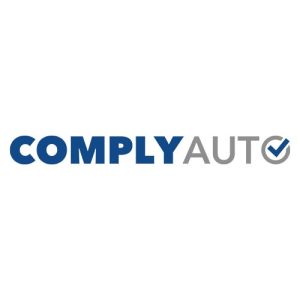In the fast-paced world of automotive retail, deal jacket audits are becoming increasingly important for dealerships looking to stay compliant and avoid regulatory and consumer risks. This article examines why these audits matter, the challenges dealerships encounter in conducting them effectively and recent regulatory actions highlighting their significance.
What is a Deal Jacket Audit?
Deal “jackets” are comprehensive files containing all documentation related to a vehicle sale or lease, and they serve as the primary record of each transaction. These are essential records of a vehicle sale or lease, and they tell a story of compliance and of process. These files contain disclosure documents, contracts, registration and titling information, financial information, receipts and other transaction records, and can easily run into hundreds of pages. Many dealerships conduct audits of these deal jackets for a variety of reasons. This means that they will (either themselves or, more likely, with the assistance of an outside expert) review a selected number of deal jackets, and review them in detail to look for compliance, business and other issues. Why only a select few? Because deal jacket audits are complicated, time-consuming and difficult to do properly. Ideally, dealers would review each deal jacket carefully, but as a practical matter, there has never been time to do so (until now).Why Audit Deal Jackets?
Auditing deal jackets is essential for several reasons:- Compliance Verification: Regular audits ensure that all required documents are present and properly completed and signed, demonstrating dealership compliance with state and federal regulations.
- Fair Lending Documentation: An audit can ensure that dealers properly document steps taken in the sales and leasing process to ensure fair lending practices.
- Risk Mitigation: By identifying and correcting errors or omissions early, dealerships can reduce the risk of costly penalties and legal actions. By addressing issues like Red Flags compliance and identity verification, dealers can also address potentially costly business risks from identity theft and other fraudulent activities.
- Process Improvement: Audits can reveal inefficiencies or recurring issues in the sales and F&I processes, allowing for targeted improvements. They can also help identify issues with lender requirements, stipulations or errors that will delay payment from a lender.
- Customer Protection: Ensuring all disclosures and agreements are properly executed helps protect both the dealership and its customers from potential disputes. By identifying and addressing issues such as missing signatures, incorrect consumer disclosures or improper versions of documents, dealers can ensure customer satisfaction and reduce the likelihood of consumer litigation.
The Complexity of Deal Jacket Audits
Conducting thorough and effective deal jacket audits is a complex task that requires a unique and comprehensive understanding of the applicable state and federal law, dealership operations, F&I products and practical requirements. Deal jackets must be thoroughly reviewed for dozens of legal and regulatory issues. To be done correctly, you must ensure you are working with a company that has:- Expertise in Dealership Operations: A thorough understanding of the entire vehicle sales process — from the initial customer contact through to final delivery, as well as post-delivery matters like financing and titling issues — is essential for identifying potential challenges.
- Knowledge of State and Federal Laws: Auditors must be well-versed in the myriad of regulations governing automotive sales, including:
- Truth in Lending Act (TILA).
- Equal Credit Opportunity Act (ECOA).
- Fair Credit Reporting Act (FCRA).
- Used Car Rule.
- Privacy Rule.
- Unfair and Deceptive Acts and Practices laws (UDAP).
- State-specific laws and regulations.
- Attention to Detail: Each document in a deal jacket must be scrutinized for accuracy, completeness and compliance with current regulations.
- Understanding of F&I Products: Knowledge of various finance and insurance products, their documentation requirements, and associated regulations is essential.
- Familiarity with Evolving Regulations: The regulatory landscape is constantly changing, requiring auditors to stay informed about new rules and interpretations.
Recent Regulatory Action Highlights Audit Importance
Recent regulatory actions have underscored the significance of thorough deal jacket audits. In a notable recent case filed in August 2024, the Federal Trade Commission (FTC) brought an enforcement action against one of the largest dealership groups in the United States, for alleged violations related to F&I practices. The FTC’s complaint alleged several issues, including:- Charging consumers for F&I products without their consent.
- Misrepresenting the cost and coverage of F&I products.
- Discriminatory pricing practices.
Best Practices for Effective Deal Jacket Audits
To ensure the effectiveness of deal jacket audits, dealerships should consider the following best practices:- Establish a Regular Audit Schedule: Conduct audits on a consistent basis, not just in response to identified issues. It is only by looking for issues over time that patterns will be revealed.
- Audit a Range of Personnel and Issues: You should also ensure that you are getting a sampling of different stores, deals with different sales and F&I managers, and different types of deals (new, used, finance and lease) to ensure you are checking for a full array of issues.
- Use Comprehensive Checklists: Ensure that anyone who conducts an audit on your behalf has developed and maintained detailed checklists covering all aspects of compliance and documentation requirements at the state and federal levels.
- Leverage Technology: Engage experts who are utilizing the latest technology, systems and specialized audit software to streamline the process and improve accuracy.
- Engage External Experts: Consider periodic third-party audits to provide an objective assessment and identify potential blind spots.
- Foster a Culture of Compliance: Emphasize the importance of accurate documentation and regulatory compliance throughout the organization.









